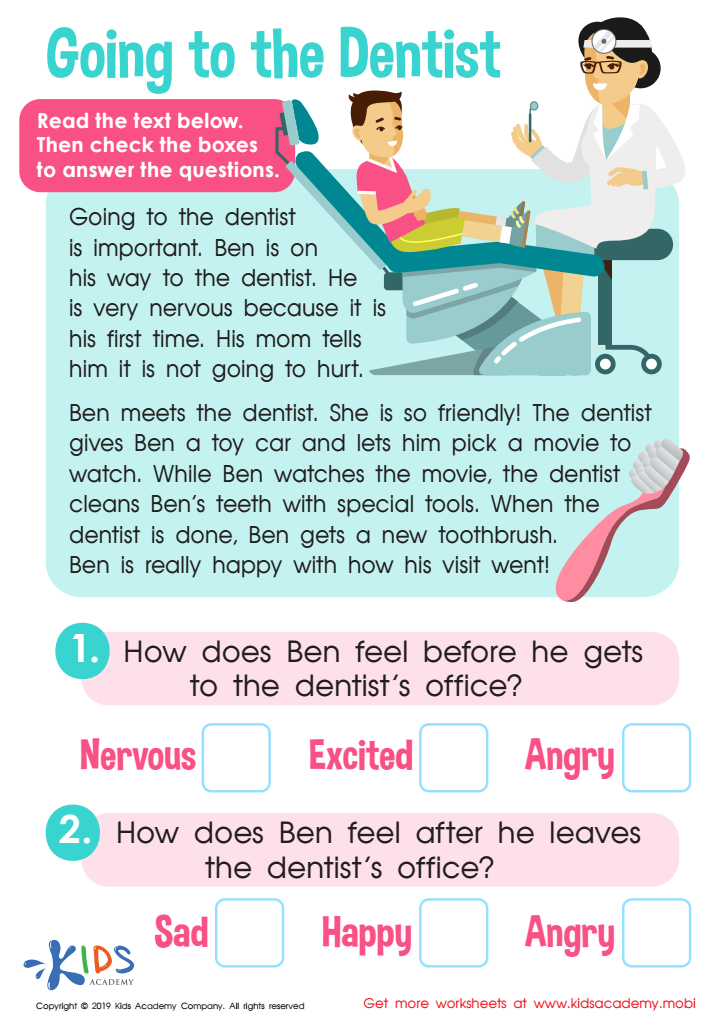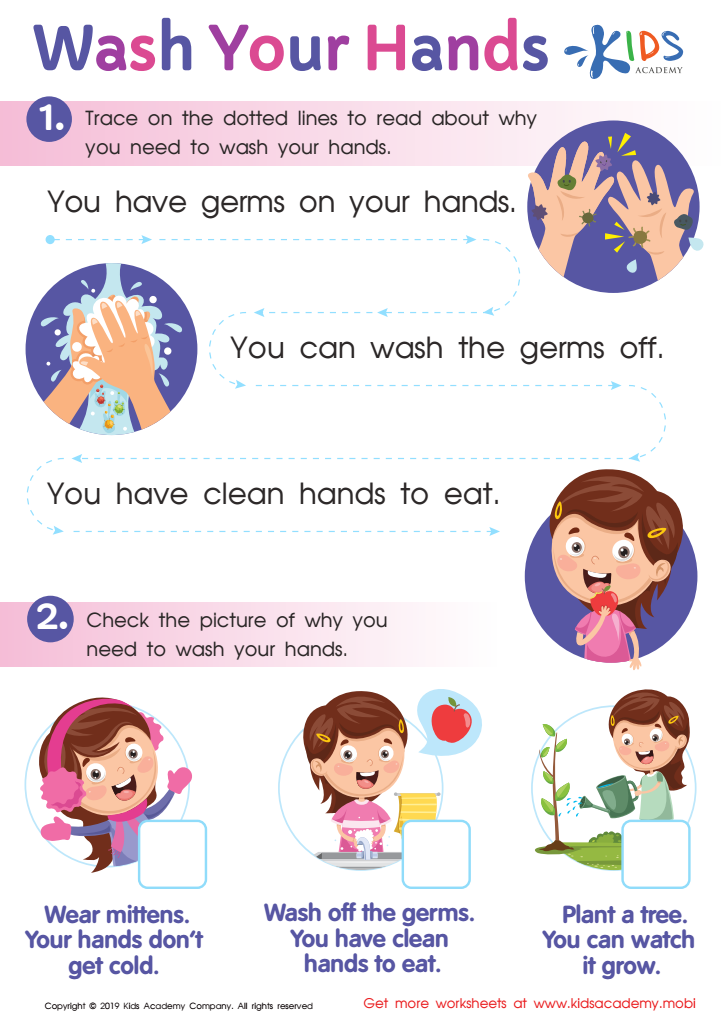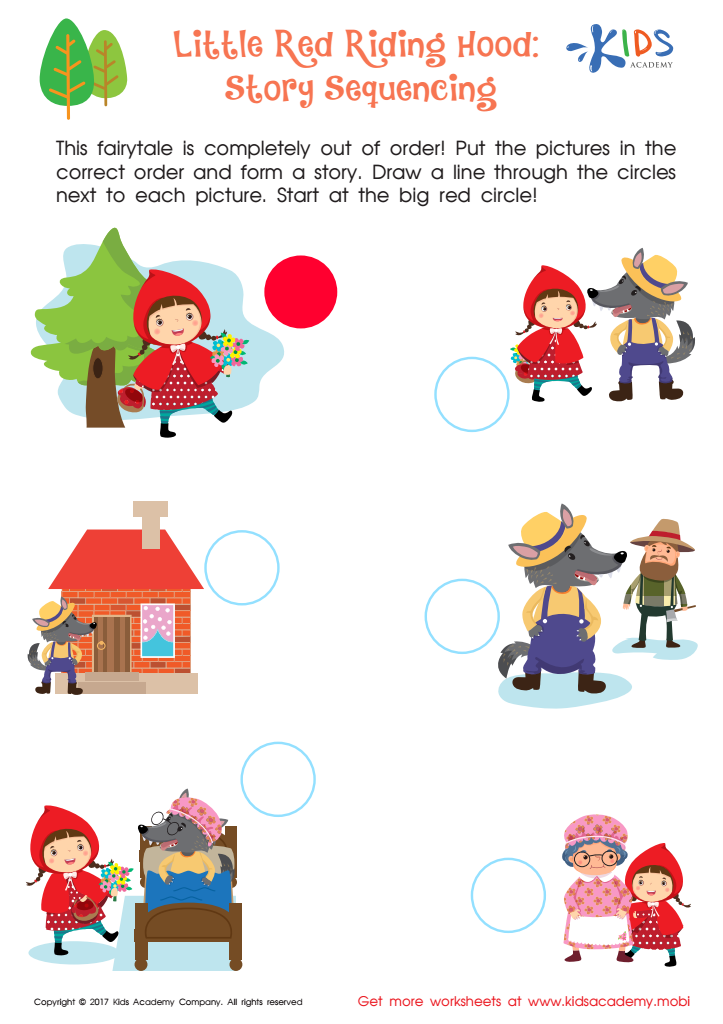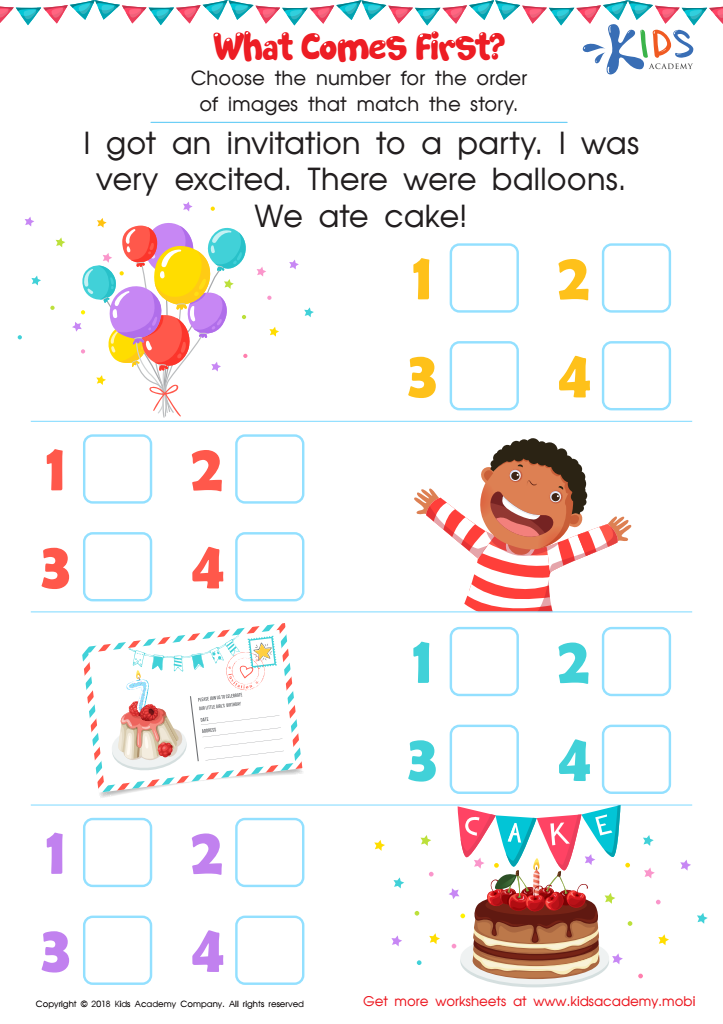Sequencing Skills Normal Reading Comprehension Worksheets for 6-Year-Olds
4 filtered results
-
From - To
Enhance your 6-year-old's reading comprehension with our engaging Sequencing Skills worksheets! Designed to develop crucial sequencing abilities, these printable activities help young learners understand the order of events, fostering critical thinking and retention. Each worksheet includes fun stories and colorful illustrations that captivate children's attention while encouraging them to recall and arrange story elements in the correct sequence. Perfect for home or classroom use, our worksheets cater to diverse learning styles and make reading comprehension fun. Give your child the tools they need to succeed with our Sequencing Skills worksheets, and watch their reading confidence soar!


Going to the Dentist Worksheet


Wash Your Hands Worksheet


Story Sequencing Printable


What Comes First Worksheet
Sequencing skills are fundamental to reading comprehension, especially for 6-year-olds navigating early literacy. At this age, children are beginning to grasp the connections between events in stories and understand how narratives unfold. These skills help children identify the order in which actions occur, which is crucial for making sense of plots, character motivations, and story events.
Developing sequencing skills enables children to summarize what they've read, making it easier for them to retell stories and engage in discussions about the text. This foundational skill lays the groundwork for more complex comprehension abilities, ensuring that children can digest and analyze information effectively.
For parents and teachers, nurturing sequencing skills is vital to fostering a positive reading experience. When children can sequence, they are more likely to enjoy reading and develop a lifelong love for books. Furthermore, strong sequencing abilities enhance critical thinking, problem-solving, and overall cognitive development, all of which are key components for academic success.
By prioritizing sequencing skills, parents and teachers empower children in their literacy journey, equipping them to tackle increasingly sophisticated texts, promoting confidence in their reading abilities, and ultimately supporting their overall academic achievement. Encouraging these skills creates readers who can engage deeply with literature and the world around them.
 Assign to My Students
Assign to My Students





















